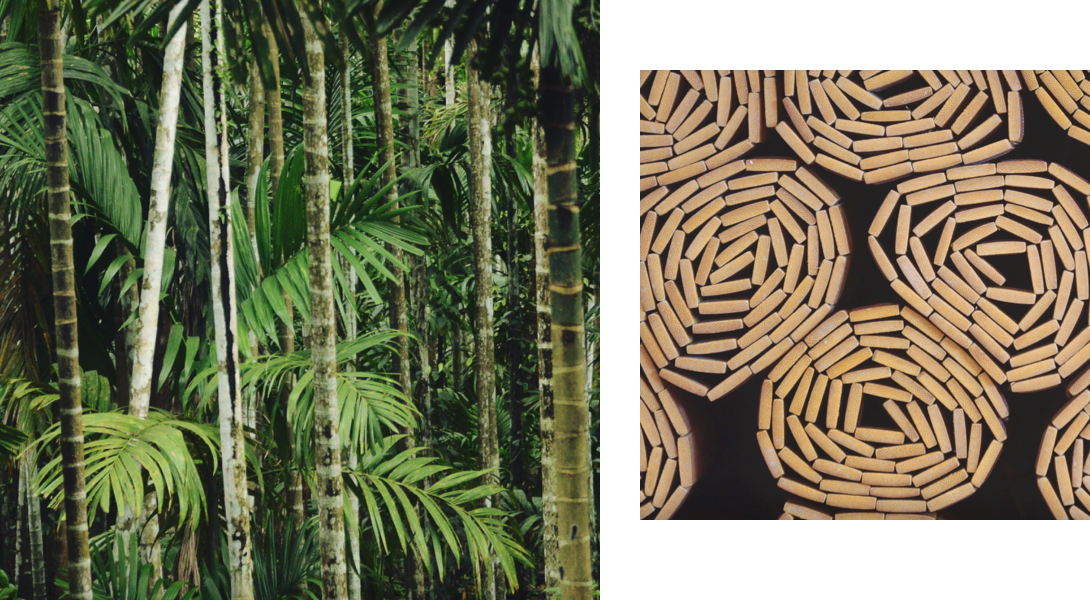USA BAMBOO
The Revolution Has Just Begun.
Bamboo Revolution is working to become the first United States company to begin domestic production of bamboo materials, with the goal of beginning full-scale production by 2024.
An Ambitious Plot
Currently, all bamboo building materials available in the U.S. are imported from Asia. In an effort to reduce the carbon footprint and to create stateside jobs, Bamboo Revolution is working to become the first American company to grow, harvest, and manufacture bamboo building materials. To make this a reality, we plan to establish an extensive infrastructure of timber bamboo that can be used to propagate vast tracks of land in cooperation with landowners in both Oregon and the Southeastern U.S.

Laying the Foundation
Over the past two years, Bamboo Revolution built a relationship with Andy Ringle of Avery Island, La., home of Tabasco® pepper sauce. His family holds a lease on one of the oldest timber bamboo groves in America. Planted in 1910 by former Tabasco president E. A. McIlhenny, in cooperation with the USDA, this grove represented an initial step toward the establishment of a bamboo industry in the United States. However, with McIlhenny’s death in 1949 this potential remained largely unrealized, and many of the bamboo groves that McIlhenny planted on Avery Island were left unmanaged and fell into neglect.
In October 2009, 10 Bamboo Revolution employees and Dain Sansome, owner of Bamboo Valley, traveled to Louisiana to help restore the bamboo groves. In return, they received permission to transplant live plants to Oregon.
Upon its transport to Oregon, the bamboo was planted on Bamboo Revolution’s cooperative farm with Bamboo Valley, an established bamboo farm in Albany, Ore. The plants have begun shooting new growth, and will multiply extremely quickly. In Spring 2011, a second load of bamboo was transported from Avery Island to Albany, doubling the size of the grove.
Why It's So Important Now
Since it is such a beautiful and sustainable building product, the popularity of bamboo in the U.S. has exploded over the past decade. The surface has only been scratched in terms of utilizing bamboo, and as traditional woods become less available and more expensive, the demand for manufactured bamboo will increase exponentially. Developing a bamboo industry within the United States will lower the carbon footprint by reducing the distance the materials are transported, and jobs will be created for industries hit hard by the changing economy.
As federal regulations tightened in the timber industry, Oregon’s rural communities have been drastically affected. Sixteen percent of mills in Oregon have closed. Oregon’s unemployment rate is currently about 12 percent, one of highest rates in the country. However, creating a bamboo industry in Oregon can help revitalize this hard-hit industry.
Bamboo farming and harvesting is a laborious task, and will create many jobs. A bamboo forest is selectively harvested each year. Each year’s harvest comes from the same place as before, creating an endless cycle of growth, but one that must be carefully managed to optimize production. Aside from the equipment used to split the bamboo culms into strips, bamboo materials utilize the same machinery as the wood products industry, allowing existing but out-of-use machinery to be put back to work.
Our goal is to help reinvigorate the timber industry in Oregon as well as create new ones. Since bamboo grows so rapidly, it is an ideal, locally grown, alternative to many other materials.
